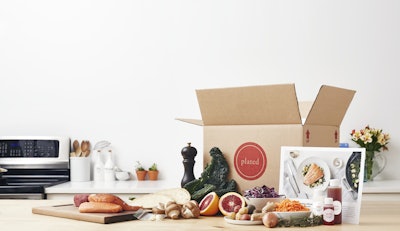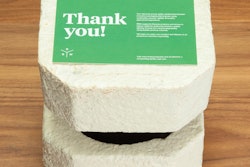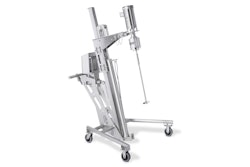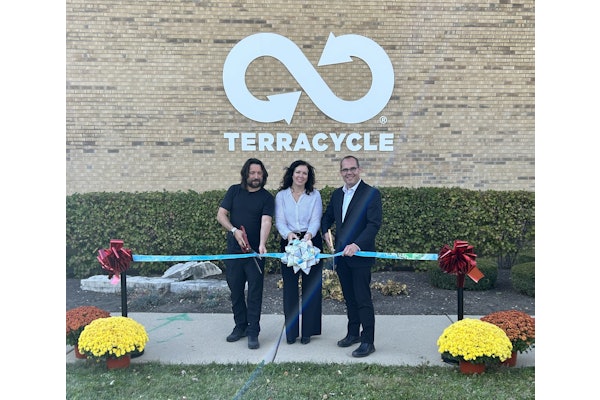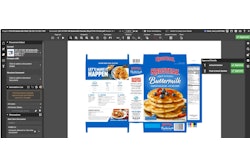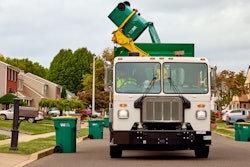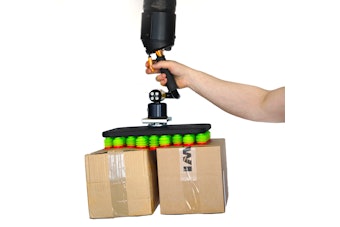Among the first cook-at-home delivery services, New York City-based Plated was launched in 2012 with a strong commitment to food quality standards. The company provides a flexible, weekly subscription service for consumers that provides them with everything they need to cook a chef-designed meal from scratch at home. Choosing from among 11 new recipes each week, consumers receive a customized kit with farm-fresh, ethically sourced ingredients and a step-by-step recipe card.
With the growth of its business, however, has come an increase in packaging—an environmental consideration that Plated is just as committed to addressing. Its goal is to have 100% carbon-neutral packaging by 2016. “With the rise of subscription services, the number of boxes people receive on a weekly and monthly basis is steadily increasing,” says Katie Horgan, Director of Operations and Logistics at Plated. “One of the more unforeseen consequences in the e-commerce boom is that plastic packaging has risen right alongside it, far outlasting what’s being shipped.”
Until mid-2014, Plated’s packaging comprised a corrugated shipper, an insulated plastic liner, and frozen gel packs. Since then, the company has been shifting to 100% recycled material for its shipper and is looking for a way to get recycled plastics into its ice packs. But the most unique change in its packaging is the material chosen to replace its plastic liners: recycled jute sacks.
Before settling on jute, Plated looked at other options such as recycled, denim-based liners. “But as far as we know, jeans are not rapidly renewable,” says Horgan. Not finding an off-the-shelf alternative, the company looked for a materials supplier that could help it build a sustainable solution. It found a partner in TemperPack, the creator of Jutebox insulation material, which is made from the discarded burlap bags used to ship coffee and cocoa.
Jute is a vegetable fiber grown from its namesake plant, predominantly found in Southeast Asia. A rain-fed crop that grows quickly, jute is affordable to produce and is a rapidly renewable resource. Because it is durable and inexpensive, jute is used to produce sacks for shipping dry goods; in trade cities such as Antwerp and Amsterdam, these bags number in the millions. After use, the majority are thrown away.
“We were looking for 100-percent recycled or 100-percent recyclable material, and we ended up going with recycled because it adds the least amount to the waste change,” Says Horgan,
“We’re in people’s homes every week, and we understand that packaging is a pain point for our customers,” she adds. “With our new jute liner, we are ensuring that we are not only sending our consumers what they need for their meals, but also that we are sending ingredients in post-consumer, recyclable materials whenever possible.”
The one-piece, jute-based liners are produced and assembled by TemperPack at its facility in Virginia and are shipped to Plated’s fulfillment centers in California, Chicago, Miami, and New York. According to TemperPack, Jutebox emits just 0.23 lb of CO2 per pound of insulation when manufactured versus 4.5 lb CO2 for traditional polyurethane insulated liners.
The more sustainable option comes with a price though: Jutebox is 10% more expensive than Plated’s previous liner material. “We made the conscious decision to accept the slightly higher cost in exchange for the added environmental benefits and to underscore our commitment to increasing transparency and sustainability in the food supply chain for our customers,” Horgan explains.
Plated is the first company to use jute as thermal insulation and is TemperPack’s sole development partner. Since it began using the new material in June 2015, Horgan says Plated has received a lot of positive feedback. “Our customers have been reusing the compostable insulation as an anti-weed mats for their gardens, lining their window plant boxes, adding the jute to their compost pile, and finding other creative and environmentally friendly ways to repurpose,” she says. “We are committed to bringing our customers packaging with a gentler footprint, and we hope to initiate a dialogue about the environmental impact of the rise of e-commerce.”
